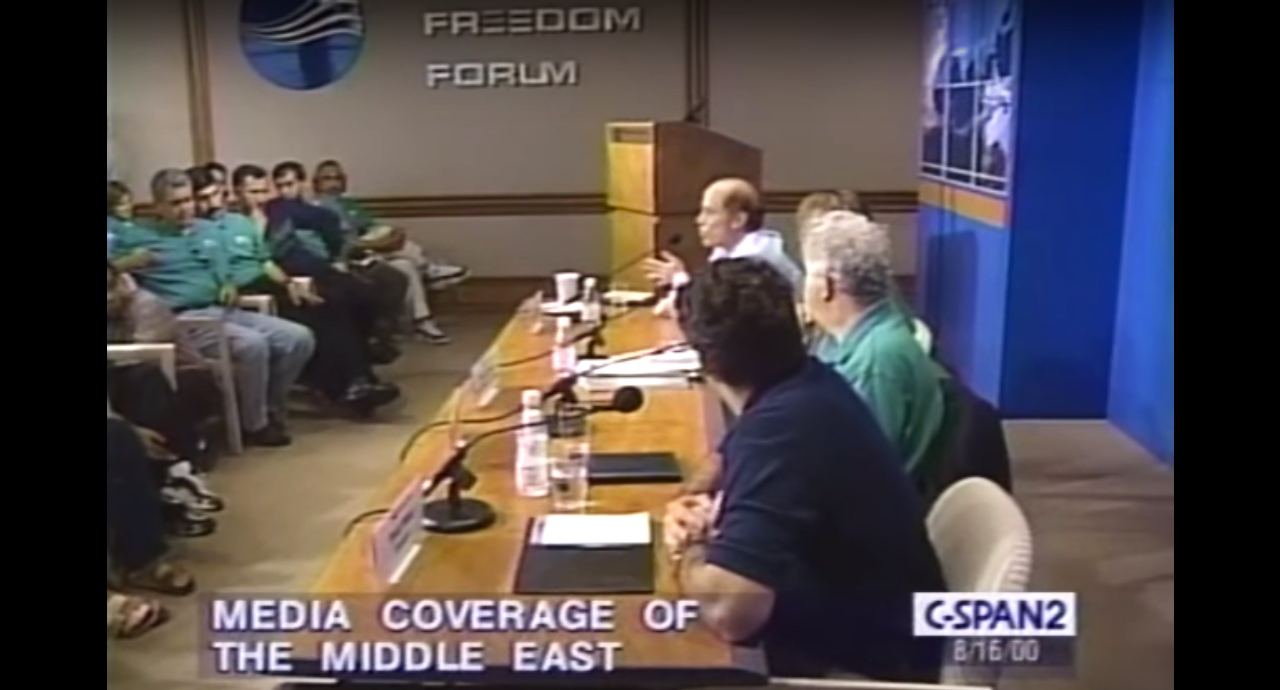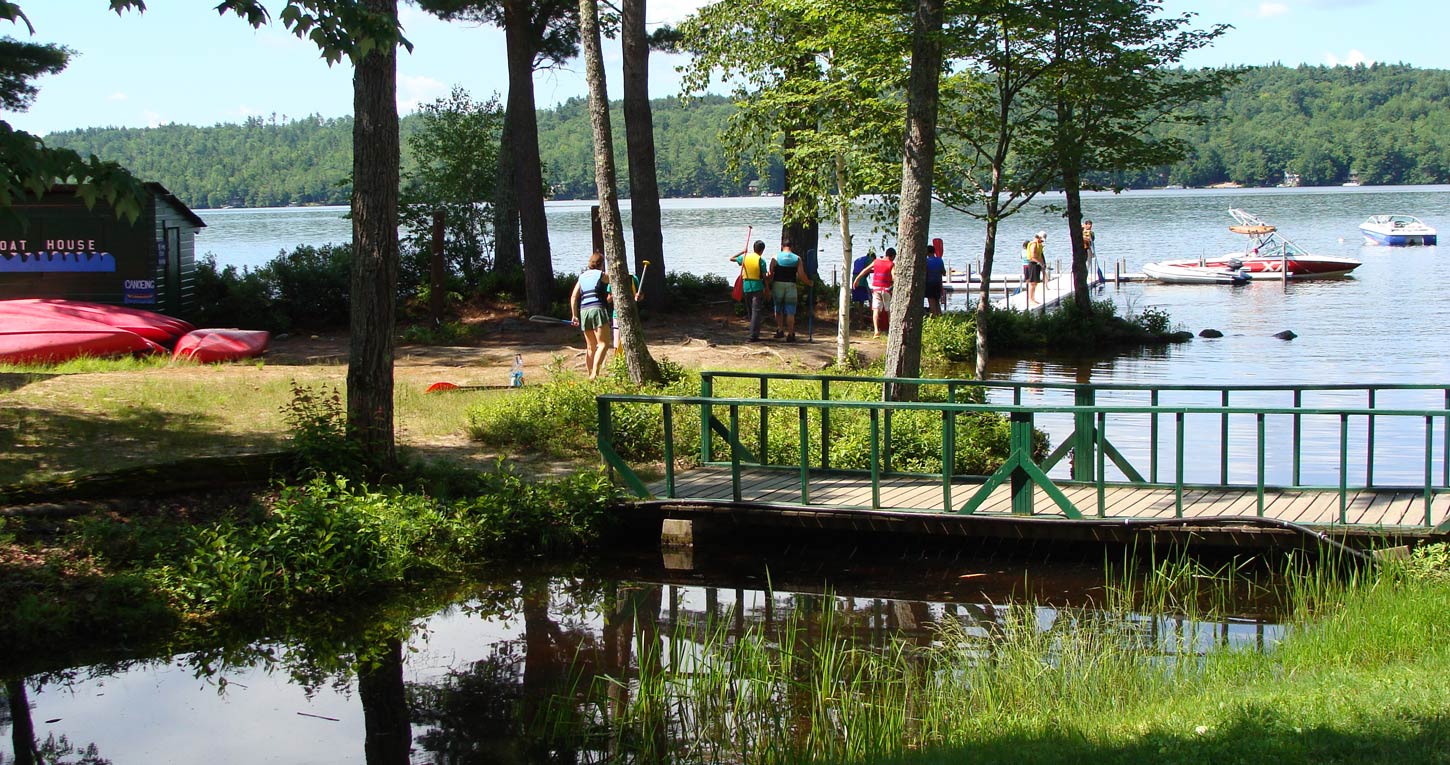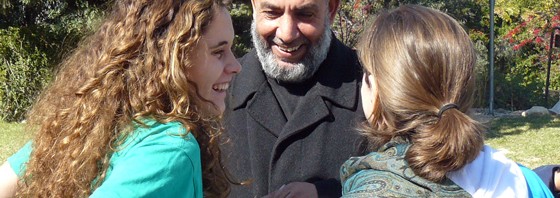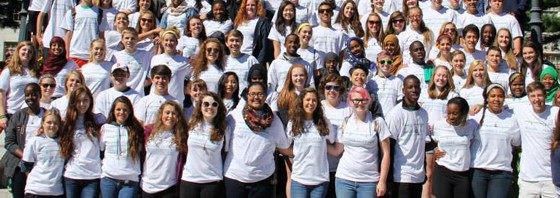Journalists, including John Wallach, engage with Israeli and Palestinian Seeds about how the media covers the Middle East peace process.
Among the topics they addressed were the amount of censorship imposed on various media, the media role in humanizing those in opposite camps, and differences between Palestinian and Israeli press coverage of events.





 Interspersed with the dialogue sessions were several rounds of team-building activities, including some spirited and uniquely Seeds of Peace field sports like “Steal the Bacon,” as well as a lively “talent show” of skits and music put on by the Seeds. Another important feature of the event was the presence of several adult Delegation Leaders whose help in conducting events was invaluable. View a short video about the Delegation Leaders program produced by Seed alumni Fatma Elshobokshy.
Interspersed with the dialogue sessions were several rounds of team-building activities, including some spirited and uniquely Seeds of Peace field sports like “Steal the Bacon,” as well as a lively “talent show” of skits and music put on by the Seeds. Another important feature of the event was the presence of several adult Delegation Leaders whose help in conducting events was invaluable. View a short video about the Delegation Leaders program produced by Seed alumni Fatma Elshobokshy. The day began with a tour of the city and a trip to the Museum in Taibe. The Seeds then traveled to a Seed’s home, for a presentation and discussion led by Managing Director and Chief Administrator in Israel, Eyal Ronder, a Ministry of Education official, Rauf Daood, and the head of the Taibe Education Department. A delicious dinner was shared after the successful and exhilarating discussion.
The day began with a tour of the city and a trip to the Museum in Taibe. The Seeds then traveled to a Seed’s home, for a presentation and discussion led by Managing Director and Chief Administrator in Israel, Eyal Ronder, a Ministry of Education official, Rauf Daood, and the head of the Taibe Education Department. A delicious dinner was shared after the successful and exhilarating discussion. On January 11-12, 2009 schools participating in the Model Schools Initiative in Jenin, Bena na’eem (outside of Hebron), Jerusalem and the UNRWA school in Walla Jay (close to Bethlehem) received a visit by Seeds of Peace representatives. The representatives met with principals and teachers at the schools to discuss implementations of techniques, learned at a June workshop in Jenin, current needs and further steps to be taken.
On January 11-12, 2009 schools participating in the Model Schools Initiative in Jenin, Bena na’eem (outside of Hebron), Jerusalem and the UNRWA school in Walla Jay (close to Bethlehem) received a visit by Seeds of Peace representatives. The representatives met with principals and teachers at the schools to discuss implementations of techniques, learned at a June workshop in Jenin, current needs and further steps to be taken. The week’s events were led by Director of Global Programming, Paul Mailhot, as well as Facilitation Training program instructors, Danny Metzel and Farhat Agbariyah. 16 Israeli and Palestinian Seeds worked with ASL kindergarten through high school students regarding conflict resolution tactics. Throughout the week, facilitators were involved in approximately 40 classes.
The week’s events were led by Director of Global Programming, Paul Mailhot, as well as Facilitation Training program instructors, Danny Metzel and Farhat Agbariyah. 16 Israeli and Palestinian Seeds worked with ASL kindergarten through high school students regarding conflict resolution tactics. Throughout the week, facilitators were involved in approximately 40 classes.

